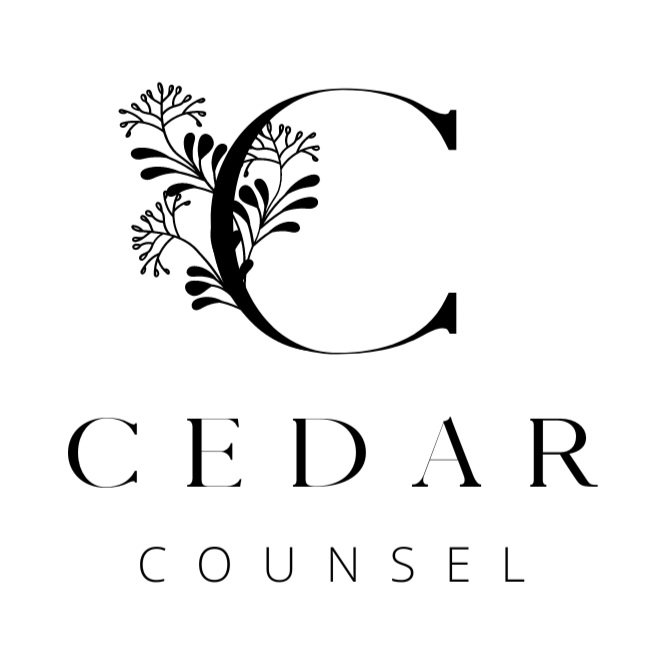Year-End Reflections – Your Top 10 Estate Planning Questions - Part II
As we wrap up the year, it’s natural to think about how we’ve spent our time, energy, and resources—and how we want to prepare for the future. Estate planning often feels like one of those “someday” tasks, but it’s deeply connected to the people and priorities we care about most. In Part 1, we tackled the basics, like wills and trusts. Now, let’s dive into the more nuanced, but equally important, questions families often face when planning their legacies.
Question #6: How Can I Protect My Children’s Inheritance?
You’ve worked hard to build a legacy, and ensuring it benefits your children without unnecessary risks is paramount. An asset protection trust is a powerful tool to shield an inheritance from threats like creditors, lawsuits, or even a future divorce.
For instance, I recently worked with “Rachel and David,” who wanted to ensure their daughter, “Lily,” would have financial security as she pursued her entrepreneurial dreams. By setting up an asset protection trust, they created a safety net that allows Lily to access funds for meaningful opportunities, like starting a business, while protecting the inheritance from unforeseen challenges. This approach gave Rachel and David peace of mind knowing their daughter’s future was secure.
Question #7: How Do I Ensure My Children Are Cared For?
Selecting guardians is one of the most important and emotional decisions you can make as a parent. A Kid’s Protection Plan not only names permanent guardians but also includes temporary guardianship provisions and detailed instructions for your children’s care in emergencies.
When I worked with “Karen and Michael,” they were torn between naming Karen’s sister, who shared their parenting values, and Michael’s brother, who lived closer but had different priorities. Through our discussions, they were able to make a thoughtful decision and document their wishes clearly. The relief they felt knowing their children would be cared for exactly as they intended was invaluable.
Question #8: What Happens to My Business When I’m Gone?
If you’re a business owner, your estate plan must include strategies for its future. A business succession plan addresses who will take over, how ownership will transfer, and how to maintain operations.
For example, “Maria,” a bakery owner, dreamed of passing her business to her daughter, “Sofia.” However, Sofia’s career ambitions lay elsewhere. Together, we crafted a plan to sell the bakery to Maria’s trusted business partner while establishing a trust to support Sofia’s goals. This approach ensured Maria’s legacy lived on while honoring Sofia’s independence.
Question #9: How Do I Plan for the Next Decades and Beyond?
Long-term planning is about safeguarding your future and your family’s well-being. Key considerations include:
Healthcare Directives: Designate trusted individuals to make medical decisions if you’re unable to.
Retirement Integration: Align your estate plan with your retirement savings to maximize benefits for your heirs.
Long-Term Care Costs: Preparing for potential long-term care needs with tools such as irrevocable trusts or long-term care insurance can protect your assets while ensuring your needs are met.
For instance, when the “Carter family” set up an irrevocable trust for their matriarch, “Margaret,” years ahead of her needing long-term care, they were able to protect her assets while ensuring she received the care she needed. The family’s foresight provided both financial stability and emotional comfort during a challenging time.
Question#10: How do I take the first step in estate planning?
Taking the first step in estate planning can feel overwhelming, but it all starts with getting organized. I often tell my clients that the best way to begin is to gather essential documents such as financial statements, insurance policies, property deeds, and any existing wills or trusts. It's also helpful to make a list of your assets and debts, as well as the people you wish to include in your planning.
I remember one client, let’s call her “Sarah,” who came to me after her father passed away unexpectedly. She was overwhelmed by the estate settlement process because she didn’t have a clear understanding of his finances or where to find important documents. Together, we worked through gathering everything from bank accounts to retirement plans. Sarah felt a sense of relief once everything was organized and in one place—it made the next steps much easier to handle.
Getting organized early on, even if it feels like a small step, is a big part of setting yourself up for success in estate planning.
Final Thoughts
Whether protecting your children’s inheritance, planning for your business, or preparing for the unexpected, thoughtful planning ensures that your legacy is preserved and your loved ones are cared for.
At Cedar Counsel, LLC, we are here to guide you through the process, offering solutions tailored to your unique needs. Let’s work together to craft a plan that provides clarity and peace of mind.
This article is a service of Cedar Counsel. We don’t just draft documents; we ensure you make informed and empowered decisions about life and death, for yourself and the people you love.
